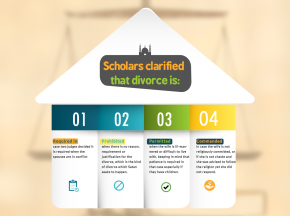content of level
Fiqh of Family - New Born- part I
In this episode, Sh. Ahmed AlRumh explains The etiquettes of the new born baby and some advices to the parents – 01.
Fiqh of Family - Intro New Born
In this episode, Sh. Ahmed AlRumh explains The etiquettes of the new born baby and some advices to the parents.
Fiqh of Family - Polygyny
In this episode, Sh. Ahmed AlRumh explains the rules of polygamy , the reasons for legislating it, the dangers of ignoring it and its position in Islam.
Rules and Manners of Traveling - part II
This video deals with the rules and Manners of Traveling and Etiquettes of traveling in Islam by Shaykh Ahmed AlRumh – 02.
Rules and Manners of Traveling - part I
This video deals with the rules and Manners of Traveling and Etiquettes of traveling in Islam by Shaykh Ahmed AlRumh – 01.
Rulings of Islamic Law - A Simplified Presentation
This book, Rulings of Islamic Law: A Simplified Presentation is the first of a series which aims to provide Islamic knowledge covering all the areas of life in which a person needs authentic Islamic knowledge from validated sources.
Endowment
Endowment means dedicating something that can give benefit, while retaining ownership of it, in order to gain reward from Allah. This means that the principal is retained, but the yield is given freely
The Prayer of Eclipse
Praying it is a communal obligation and it must be prayed in congregation and in the masjid. When the eclipse is visible and can be seen by people, the call is made to gather the Muslims in the mosque.
The Prayer for Rain
Offering prayers for rain (salaat al-istisqa’) is a Sunnah, as confirmed by saheeh hadeeths and the practice of the early generations of Islam.
Hunting
This refers to the killing of an animal in the wild, which is lawful to eat, has no owner and cannot be brought under human control.
Conditions for proper slaughter
Slaughter should be in accordance with the way recommended by Islam, it is obligatory, if not, it is not permitted to eat that animal. Scholars unanimously agree on this.
Divorce
Scholars clarified that divorce is:
The Rights of the Husband over the Wife
The Rights of the Husband over the Wife from the Quran and Sunnah:
The Rights of Wives
The Basic Rights of Wives in Islam according to the Quran and Sunnah:
Marriage from an Islamic Perspective
In Islam, marriage is a natural need to achieve stability, an incentive for love, mercy and altruism, and a method to preserve the humankind by protection.
Conditions of a Valid Marriage in Islam
There are three pillars or conditions for the marriage contract in Islam:
The grand ablution (Ghusl)
There are two forms of grand ablution (Ghusl):
Pillars of Islam
Islam has been built on five pillars which you can find listed in full here:
Pilgrimage to Mecca
Hajj lasts for 5 days and includes a visit to the Ka'ba - a House built by Abraham for the worship of the One, True God.
The Pilgrimage
Hajj is the biggest gathering in the world. About 3 million Muslims perform pilgrimage every year to Mecca, the heart of Islam.




















